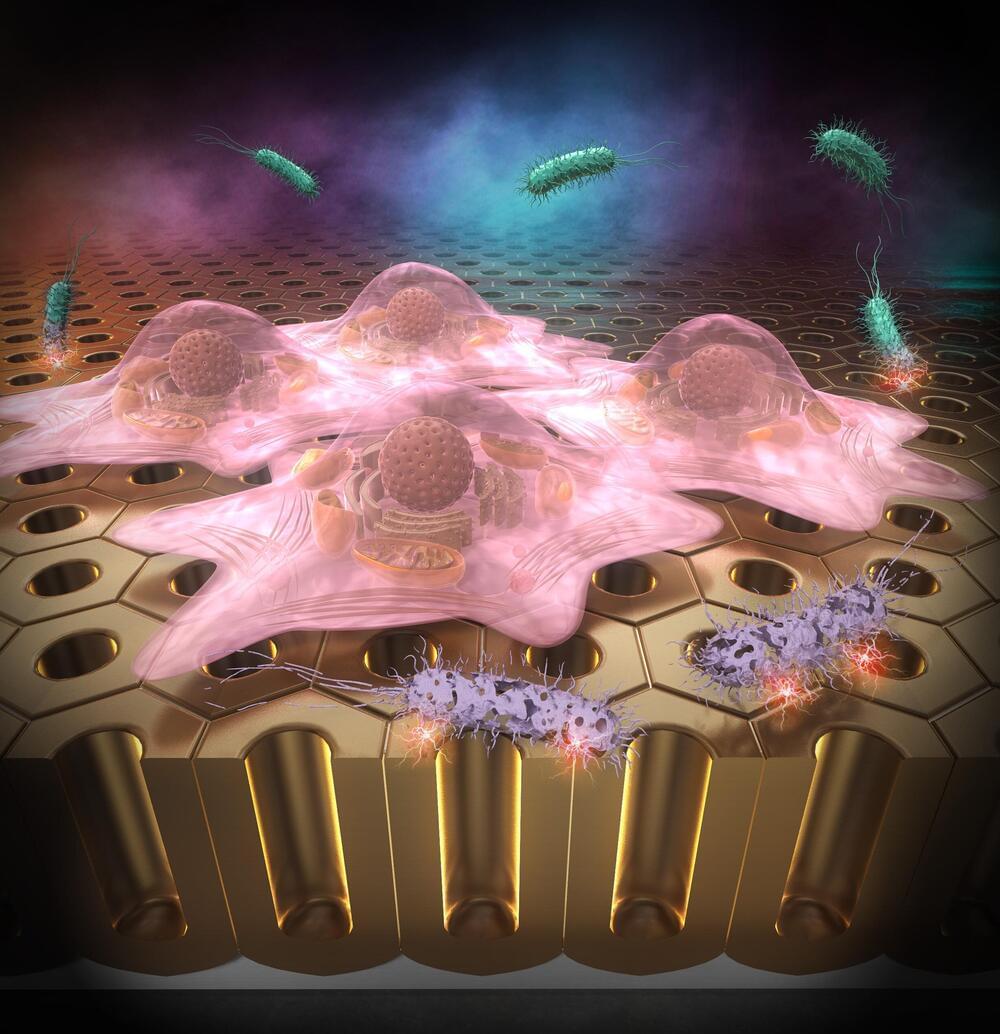Researchers from Tokyo Metropolitan University have created nanostructured alumina surfaces which are strongly antibacterial but can be used to culture cells. They found that anodic porous alumina (APA) surfaces prepared using electrochemistry in concentrated sulfuric acid had unprecedented resistance to bacterial growth, but did not hamper cell cultures.
The work is published in the journal Langmuir.
The team’s technology promises to have a big impact on regenerative medicine, where high quality cell cultures without bacterial contamination may be produced without antibiotics.
